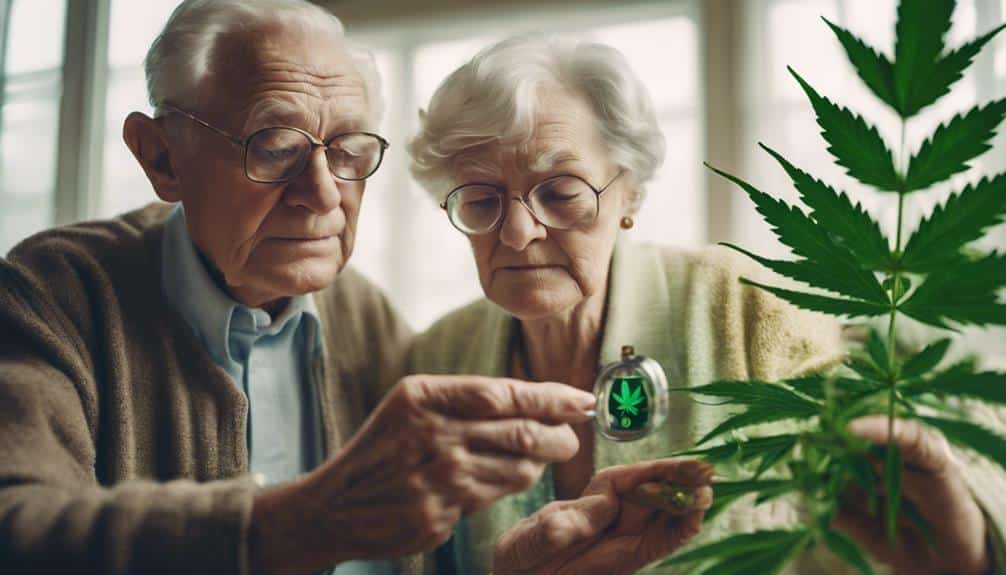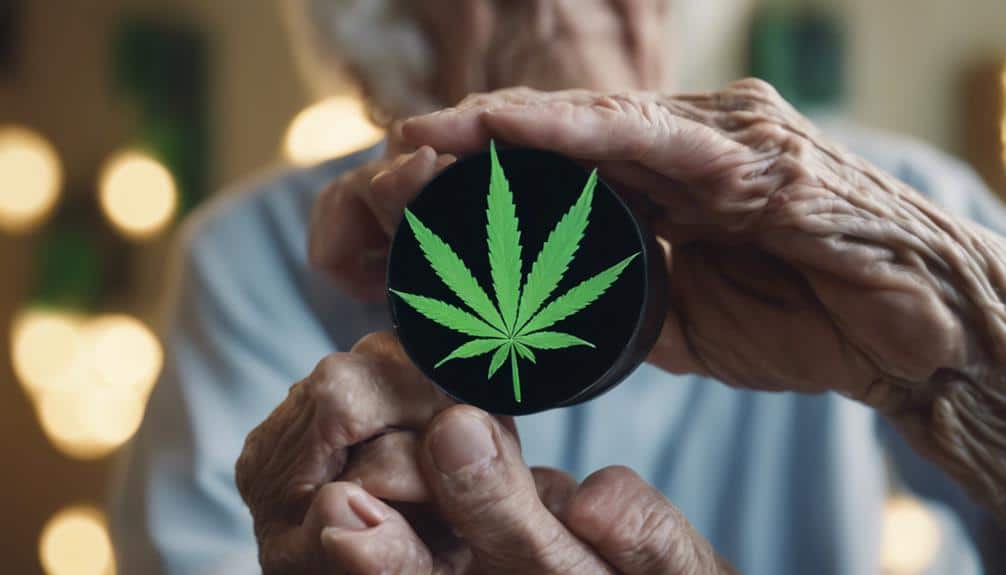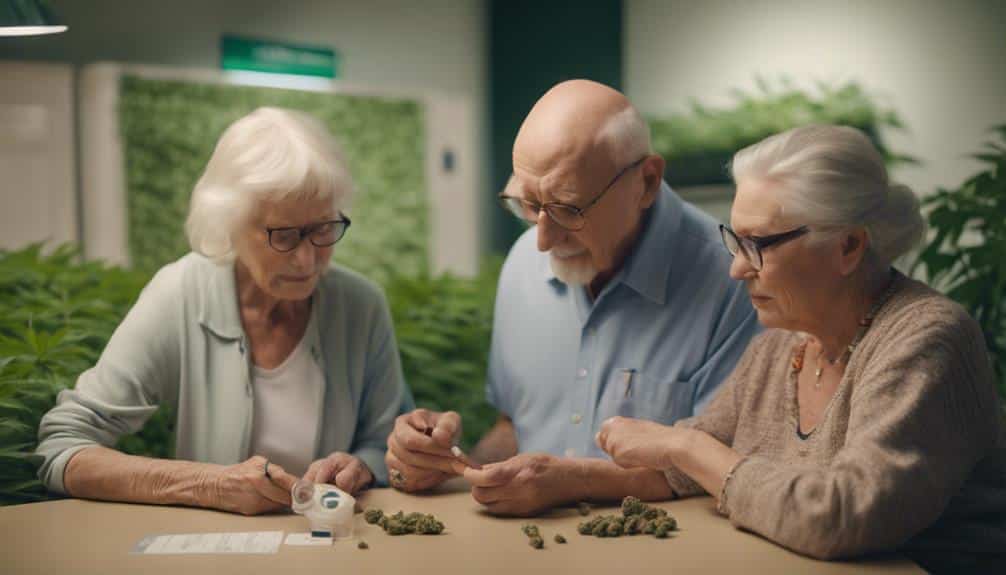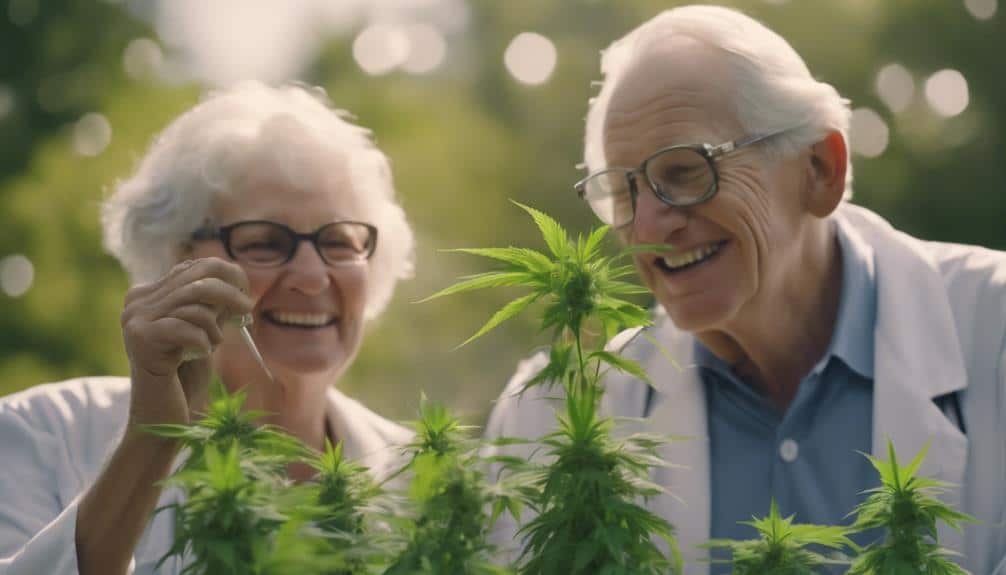You’ve likely heard the buzz about medical marijuana for elderly patients, especially in Delaware. This isn’t just another fad; it’s a potential game-changer in managing health conditions that often plague seniors. Now, imagine experiencing relief from chronic pain, improved sleep or a better appetite. Sounds promising, right? However, it’s not as simple as it seems. There are considerations such as dosage, side effects, and the risk of dependency. There’s a lot to unpack here, isn’t there? Let’s get started then, shall we?
Table of Contents
Understanding Medical Marijuana

Delving into the realm of medical marijuana requires understanding its makeup, potential benefits and the scientific underpinnings that validate its use in healthcare. Medical marijuana or cannabis is a plant containing over 100 different cannabinoids each with unique properties. Cannabinoid science has revealed two primary cannabinoids serving therapeutic purposes: THC (tetrahydrocannabinol) and CBD (cannabidiol).
THC is the psychoactive compound that gives users a ‘high’ feeling but also provides pain relief, stimulates appetite and reduces nausea. On the other hand CBD doesn’t induce a high but has been recognized for treating seizures inflammation and anxiety.
Different therapeutic strains blend these cannabinoids to target specific conditions. For example a strain rich in THC might be preferred for chronic pain relief while a high-CBD strain may be useful for seizure disorders.
Understanding the science behind these therapeutic strains allows for more informed decisions when selecting the right medical marijuana treatment. Remember, it’s important to consult with a healthcare provider for personalized advice based on individual health needs.
Delaware’s Medical Marijuana Laws
Navigating Delaware’s medical marijuana laws requires understanding its specific stipulations and requirements to ensure compliance while benefiting from this therapeutic option. Delaware’s laws have clear legal implications. As a caregiver or patient, you’re allowed to possess up to six ounces of marijuana but can’t cultivate it at home.
To be eligible for medical marijuana usage, you must meet Delaware’s patient eligibility criteria. These include being a resident of Delaware, being at least 18 years old and having a qualifying debilitating medical condition ranging from cancer and Alzheimer’s to chronic diseases causing severe pain or nausea. However, it’s crucial that the doctor recommending marijuana has a bona fide physician-patient relationship with you.
Before becoming a registered medical marijuana patient, you’ll undergo a background check and are expected to renew your registration annually. It’s important to remember that using medical marijuana even with a card can have legal implications if rules aren’t followed. Stay informed and updated on these laws as they can change affecting your eligibility and compliance.
Potential Health Benefits for Seniors

As an elderly patient considering medical marijuana in Delaware it is crucial to understand the potential health benefits that could significantly improve your quality of life. Medical marijuana has several therapeutic qualities particularly beneficial for seniors.
Cannabis psychoactivity can be managed and tailored to your needs. With regulated dosages, you can achieve pain relief, mood regulation and improved sleep without necessarily experiencing the typical ‘high.’ This is advantageous as it allows for the alleviation of conditions like arthritis, chronic pain, insomnia and anxiety which are common in seniors.
Moreover cannabis can stimulate appetite offering an effective solution for those struggling with loss of appetite often linked to certain medications or health conditions. Additionally there’s evidence that cannabis might have neuroprotective properties potentially slowing the progression of neurodegenerative diseases like Alzheimer’s and Parkinson’s.
Implementing senior safety measures when using medical marijuana is essential. This includes starting with low doses monitoring reactions and working with a healthcare professional to ensure optimal results. Remember the goal is to enhance wellbeing and improve quality of life in a safe controlled manner.
Risks and Side Effects
While medical marijuana offers numerous benefits for elderly patients it’s equally important to be aware of potential risks and side effects that may accompany its use.
Navigating dosage dilemmas is one pressing issue. Finding the right dose of medical marijuana is crucial as too little may render it ineffective while too much could lead to undesirable side effects such as dizziness hallucinations or rapid heart rate. The complexities of metabolizing cannabis in an aging body further complicate dosage making it a balancing act requiring careful monitoring and adjustment.
Addiction concerns are equally important. While medical marijuana is generally considered less addictive than some prescription drugs it isn’t risk-free. Dependency can develop especially in individuals with a history of substance misuse. This risk is heightened in the elderly who often have extended medication routines that could potentially interact with cannabis.
Obtaining Medical Marijuana in Delaware

To obtain medical marijuana in Delaware you’re required to follow specific procedures and meet certain criteria ensuring its use is strictly for legitimate medical purposes. The application process is critical and involves several steps.
First, consult with a Delaware-licensed physician who confirms that you have one of the qualifying conditions. These include severe illnesses such as cancer, HIV/AIDS, Alzheimer’s and other chronic or debilitating diseases. The doctor will assess your health history current symptoms and potential benefits of marijuana use for your specific case.
Once your physician provides certification you can apply to the Delaware Department of Health and Social Services. The application should include your physician’s certification proof of residency and a $125 application fee. It’s imperative to ensure all details are accurate and all requirements are strictly adhered to which not only validates your need but can also expedite the approval process.
Different Methods of Consumption
Once you’ve received your medical marijuana card there are several different methods for consuming this therapeutic substance each with unique benefits and drawbacks. Understanding these methods helps make an informed decision that suits your health needs and lifestyle.
Smoking is a common method but may not be ideal for everyone especially elderly patients with pulmonary issues. Vaping devices offer an alternative perceived as less harmful to the lungs by heating the marijuana to release its active components without burning it reducing harmful byproducts associated with smoking.
Cannabis edibles are another option. They come in a variety of forms from cookies to gummies offering a smokeless method of consumption. Edibles provide longer-lasting effects compared to inhalation but take more time for the effects to kick in due to the digestive process.
Topicals like creams and lotions are applied to the skin for localized relief of pain or inflammation. They don’t provide the psychoactive effects associated with other methods making them a good choice for those who want therapeutic benefits without the ‘high.’
Each method has its considerations so it’s crucial to consult with a healthcare provider when choosing the best method for you.
Patient Testimonials and Case Studies

Drawing from real-life experiences can often provide invaluable insights so let’s consider some patient testimonials and case studies related to medical marijuana use in elderly populations. Personal experiences can illuminate treatment outcomes providing real-world evidence of benefits and drawbacks.
Consider an 81-year-old Delaware resident suffering from chronic arthritis. Traditional medication wasn’t providing sufficient relief and side effects were detrimental. After turning to medical marijuana significant improvements in pain management mobility and overall quality of life were reported. The patient also indicated that side effects such as mild disorientation were more manageable than those from previous medication.
Another case is of a 75-year-old cancer patient who found relief from nausea and increased appetite with medical marijuana suggesting that benefits extend beyond pain management including relief from other symptoms of chronic illnesses.
These testimonials highlight potential benefits of medical marijuana for elderly patients. However they also underscore the need for careful consideration of each patient’s unique needs tolerances and overall health status. As you consider these cases remember that medical marijuana isn’t a one-size-fits-all solution and should be part of a comprehensive treatment plan.
Future Outlook and Research
Ongoing research plays a pivotal role in shaping the potential landscape of medical marijuana use for elderly patients as we venture into the future. However research limitations often impede progress and understanding so it’s essential to recognize these barriers and work towards overcoming them.
Limited funding restricts the extent and breadth of studies conducted. Legal constraints can stifle implementation and assessment of effective marijuana-based therapies. The lack of standardized dosing guidelines for medical marijuana makes it challenging to establish its efficacy and safety for the elderly.
Each factor not only impacts progression of research but also carries significant policy implications. Your role is crucial as caregivers advocates or service providers you can voice the need for further research to policymakers helping foster a future where full therapeutic potential of medical marijuana can be explored without hindrance benefiting elderly patients with this natural alternative. Remember your efforts today can shape tomorrow’s landscape ensuring effective safe compassionate care is received.
Conclusion
Navigating the world of medical marijuana can feel like trying to decode hieroglyphics. It’s crucial to stay informed about Delaware’s laws consult your healthcare provider before diving in. Remember every silver lining has a cloud while marijuana may offer relief for various ailments risks side effects are also part of the package. Keep an eagle eye on dosage dependency potentially unearthing an elixir or at least a more comfortable existence.
I invite you to visit us at Cannabis Docs of Delaware to learn more about how medical marijuana can be a beneficial part of elderly care. Our friendly team is always ready to answer any questions you might have and guide you through the process. Don’t hesitate to give us a call at (855) 420-6797. We’re here to help navigate this journey making it as simple and stress-free as possible. We look forward to hearing from you!

